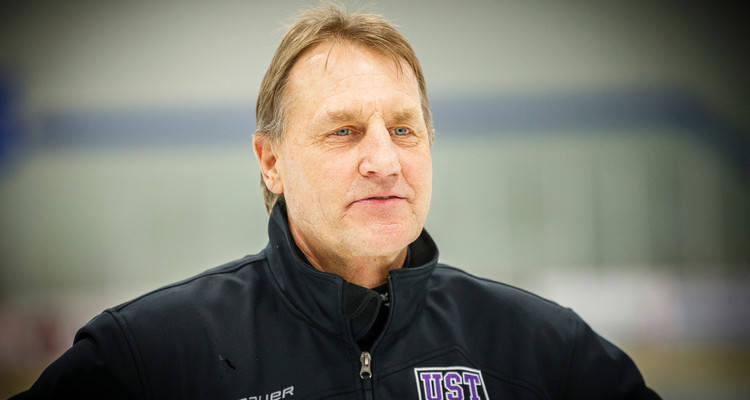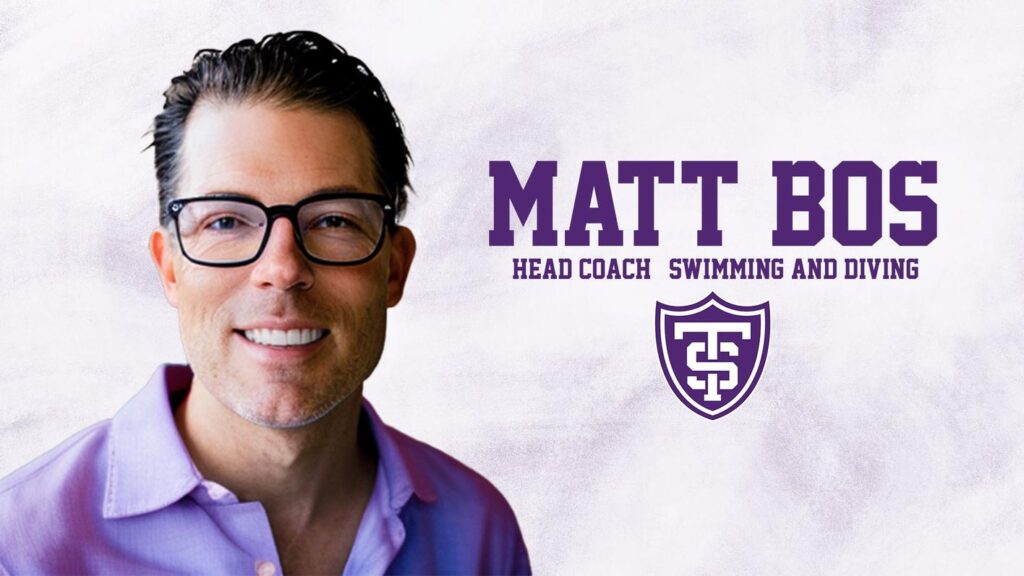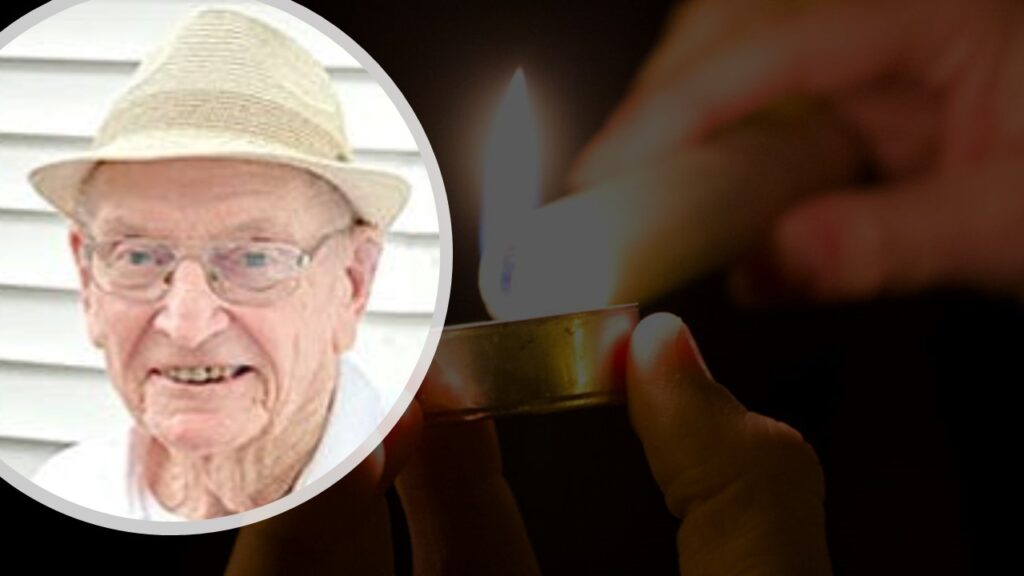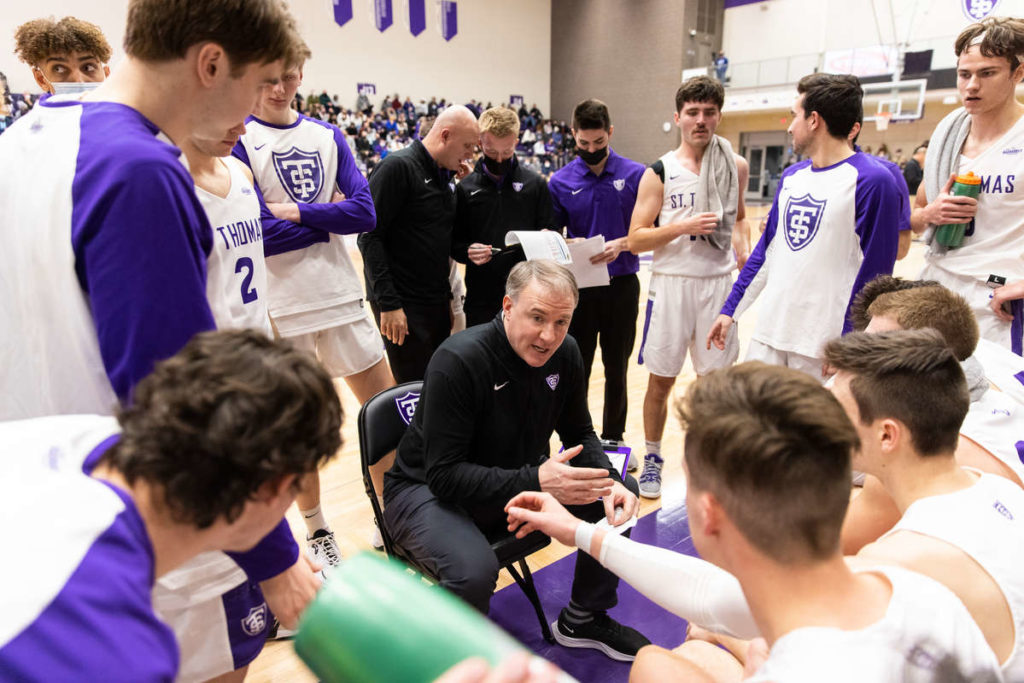It’s a well-known story about Herb Brooks that he was the final man cut from the roster of the 1960 U.S. Olympic men’s hockey team. He watched from home in Minnesota as his teammates represented their country in Italy. A scene in the film “Miracle" shows Kurt Russell playing Brooks and pulling out the official roster photo of that 1960 team; there’s Brooks sitting in the front row with his teammates. Twenty years after 1960, Brooks was on the opposite side of the encounter as the coach of the 1980 Olympic team, having to tell Ralph Cox that he wouldn’t be going to Lake Placid, that he would be the team’s final cut.
Four years before Cox and 16 years after Brooks, another man was on the receiving end of a coach telling him he was the final cut: Jeff “Duke” Boeser, St. Thomas’ men’s hockey coach. Boeser had led St. Thomas to national tournament appearances his junior and senior seasons, was the conference’s MVP in 1974 and racked up a gaudy 201 points in his collegiate career. Shortly after graduating in 1975 he tried out for the Olympic team, eventually playing a full exhibition schedule under coach Bob Johnson in 1975-76, right up until the final plane ride to the games in Austria.
As the 40th anniversary of those Olympic Games approaches, I asked Boeser about his memories of playing for his country.
Do you think back on your playing career and the Olympic team very often?
Not too much. When I played I loved doing it so much, sometimes I couldn’t even tell you if we won or lost. It was so much fun playing. I couldn’t wait when we got to the rink to get out there and play.
[As] I grew up, my dad had a rink in the backyard and we’d cry when we had to come in for dinner even. It’s always been in my blood.
My dad [Robert Boeser] played on the ’48 Olympic team. They had two teams that year that went to the Olympics and he didn’t know if his team would play. They had an AAU [Amateur Athletic Union] team and a USA Hockey team. They both went over on a ship and didn’t know until they got there who would play. … He was also a player-coach at Saint John’s in ’52 as a junior in college. ... Not too many people in the MIAC that have been player-coaches.
But my dad never really talked about that stuff. I think I got that gene.
Did you know as you were trying out that he had been on the Olympic team?
I did know that, but he never talked about it. His jersey was at home and we saw it, just never talked about it.
So you tried out in summer ’75 and played with the Olympic team that year?
They had regional tryouts and one was in Bloomington. I made that and the main tryout was in Madison in like August. [I] trained all summer, had individual meetings at the end of the tryouts and they said, ‘You’re the 21st person. We’re going to Czechoslovakia for two weeks and are taking 20 guys. You have a chance to go to Waterloo, Iowa.'
There was a senior men’s team [there] that gave me an opportunity to keep skating and to see what would happen in two weeks. So they came back from their trip and called me back and I was able to play [with the Olympic team]. We lived in Wisconsin and they had apartments for us. The home base was Madison since Bob Johnson was our coach. Practiced every day and played like a 45-game schedule before the Olympics. We played the Gophers, played [University of Minnesota Duluth], played Harvard. Played a Christmas tournament in Colorado with the Czechs, the Russians – not their best teams. I got to play that full pre-Olympic schedule.
In college my senior year I had hurt my shoulder and it kept popping out, and I wore this brace. Like anything else with an injury, the shoulder was hindering me from having success. So I took off the brace and sure enough it popped out again and kept getting weaker and weaker. Mike Randolph, the Duluth East High School coach, and myself went to Finland to play in a pre-Olympic tournament and we were sitting in the Denmark airport to go to Austria [for the actual Olympic tournament], and that’s when the coaches told us we couldn’t go. They said we could go to the Olympics, but we couldn’t stay with the team in the Olympic village, couldn’t travel with the team. In 1972, in the summer Olympics, they had terrorists come and kill some Olympic athletes, so that’s when they started limiting teams to a certain number of athletes they could have around. They were battling to get us all on the team and it didn’t work out.
Mike was pretty devastated. For myself it wasn’t as hard because I wasn’t 100 percent anyway with my shoulder. I came home and had surgery and never really thought twice about it. I knew I wasn’t 100 percent. It was OK. I’m not saying they would have taken me anyway, but it was easier.
Did you watch the games?
I don’t even remember. We came in like fifth. We didn’t have a real good showing that year. It was still amateurs that year. Herb Brooks and Bob Johnson didn’t really get along, so we didn’t have really any Gophers because Herb wouldn’t let them go. … That’s probably what gave me my opportunity, a lot of those Gophers not going.
When you came back and your shoulder was feeling better, was it just trying to continue playing and staying around the game?
I came back and took a while to rehab the shoulder. I graduated but didn’t have my teaching certificate, so [I] came back here for school in ’76-77 and helped coach. I missed hockey. I got the name of a guy that recruited American hockey players. I put a resume together and scrapbook, gave it to a guy and he said there’s a team in Finland interested in having you out because they think you could make their team. He never gave me that scrapbook back, which my mom was not real happy about.
I went over, they picked me up – the GM of the team and his family. They took me to his house, went out and tried out. You could only have a certain amount of foreign workers, so I was the only American on the team. It was in their elite league, their best league, and they would never put me on the power play because of the language barrier. I was an assist guy and you couldn’t buy an assist there because they didn’t give out second assists. I remember it was a fun year. I was kind of a homebody anyway so was a bit homesick, but it was a good experience and good hockey.
Did you jump back into coaching when you were back from Finland?
No, they had an assistant here. He stuck around until about 1981 when Terry Abram came in. I interviewed with him and he selected someone else, but he called me in January and said, ‘I made a mistake, would you come help us out? I don’t have any money for you but we’ll get you something next year.’ I’ve been here ever since.






